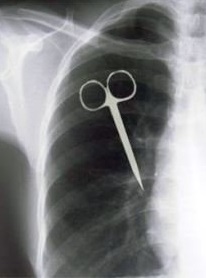Plans to cut down human error, worsening
 Statistics say 18,000 people will die and 50,000 will be left with permanent disability this year as the result of a medical mistake, or ‘adverse medical event’.
Statistics say 18,000 people will die and 50,000 will be left with permanent disability this year as the result of a medical mistake, or ‘adverse medical event’.
A summit was on over the weekend to try to cut down the numbers of accidental injury and infection by medical staff.
The Big Hits and Near Misses: UNE Patient Safety Symposium event was on in Armidale, bringing together more than 70 health practitioners and leading academics to talk about what causes medical mishaps and how they can be avoided.
Dr Donella Piper says the disturbing figures can be brought down with better preventative practice.
“People admitted to Australian hospitals have an expectation that they will come out better than they went in, unfortunately around 10% of patients will suffer an adverse event, while one in one hundred will either die or be left with a permanent disability as a consequence of a medical error,” Dr Piper said
“Bringing together some of the leading patient safety experts for this symposium at UNE is an opportunity to consider exactly what can go wrong for patients and more importantly, how these medical adverse events can be prevented.”
Health professionals attending the talks were even given a real-world event to deal with – though nobody’s life was on the line. A realistic adverse medical event was set up at UNE’s simulation lab to show how badly things can go wrong during an everyday procedure, and how best to learn from safety mistakes and missteps.
One of the most anticipated addresses of the symposium was Professor Sidney Dekker’s talk titled ‘System Failure and Human Error’. Professor Dekker is the author of Behind Human Error (2010), Drift into Failure (2011), Patient Safety (2011) and Just Culture (2nd edition, 2012).
The conference has culminated in the drafting of The Armidale Statement, which will now be presented to the NSW Clinical Excellence Commission. The statement summarises the key learning outcomes from the conference into real-world principles for patient safety.







 Print
Print